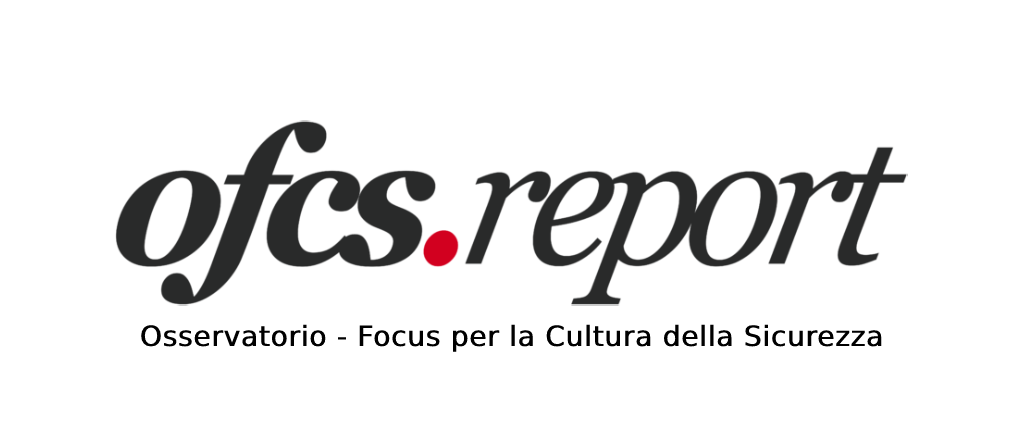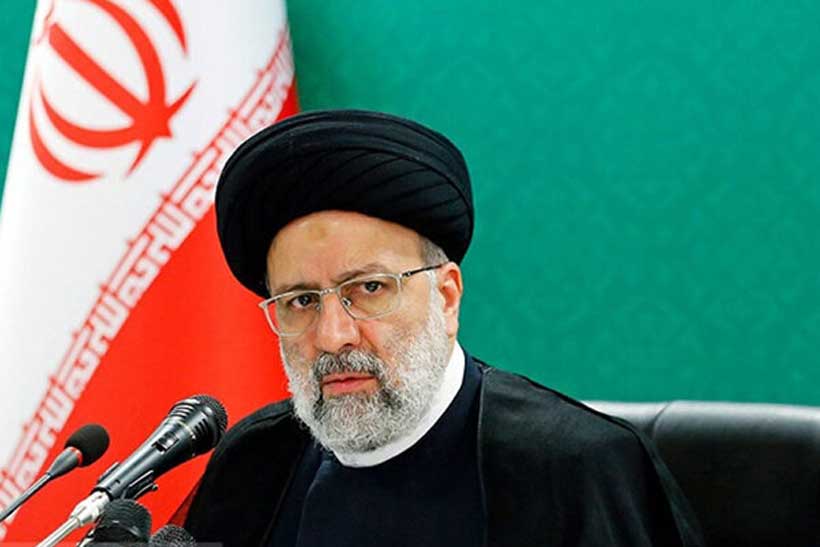On June 18, 2021, with an unprecedented abstention rate in the history of the Republic (as many as 48% of eligible voters did not go to the polls), presidential elections were held in Iran. They saw the victory of the most conservative and reactionary wing of the Iranian political landscape, personified by Ebrahim Raisi who will take office as the new President of the Islamic Republic next August.
The moderates, gathered around the outgoing President Hassan Rouhani (who had defeated Raisi in the 2017 elections), tried by all means – particularly through propaganda on social media – to stimulate people’s vote against the conservatives, albeit with little success since, prostrated by the effects of the severe economic crisis, half of Iranian voters preferred to express their dissent for the general situation in which the country finds itself by simply refusing to go to the polls.
During the 2017 election campaign, Raisi had harshly criticized Rouhani for his adhesion to the JCPOA Treaty (Joint Comprehensive Plan of Action), the agreement with the “5+1” (France, China, USA, UK, Russia and Germany) thanks to which Iran agreed to limit its nuclear program to civilian uses only, renouncing to develop nuclear weapons in exchange for a resumption of trade and the lifting of sanctions.
Rouhani’s victory in 2017 showed he had the support of the majority of the Iranian people, tired of having to pay for the nuclear power dreams of the conservative wing with an alarming rise in poverty levels. Nevertheless, the significant share of votes obtained by Raisi, i.e. 38%, was there to demonstrate that the reactionary soul of the Islamic Republic was still alive and vital.
The sudden and misguided initiative of President Trump, who in 2018 withdrew the United States from the JPCOA and tightened sanctions against Iran, undoubtedly played in favour of Raisi who, in the eyes of the most conservative voters, appeared as the only strenuous defender of the Iranian cause against the siege of Westerners, allied with Iran’s traditional enemy, namely Israel.
In view of trying to understand how Iran’s domestic and international political strategy will develop under President Raisi – who is a protegé of the Supreme Leader, Ali Khamenei, the country’s highest religious authority and a leading representative of the most orthodox wing of the theocratic regime – we need to start from the biography of this personage who, in the next five years, will be a protagonist of international relations in the Middle East.
Born 61 years ago in the city of Mashad, in 1975 Ebrahim Raisi entered the prestigious Qom Seminary, the highest institute of culture and teaching of Islamic- Shiite doctrine in Iran and the centre developing the ideology of “velayat-e faqih“, the “Guardianship of the Islamic Jurist”, thanks to which Ayatollah Khomeini – at the time exiled in Paris – succeeded in mobilizing the Islamic crowds against Shah Reza Pahlavi, bringing down his reign with the revolution of 1979.
After Khomeini’s victory, to which he had given his enthusiastic support, the young Raisi entered the office of the Special Prosecutor who distinguished himself for the systematic elimination of thousands of representatives of the previous regime and for the brutal repression of Kurdish irredentism.
After being appointed Deputy Prosecutor of Tehran in 1985, for the zeal shown in getting rid of the opponents of the theocratic regime, Ebrahim Raisi was appointed by Ayatollah Khomeini to head a four-member Committee, known as “Death Committee”, with the task of eliminating all dissidents locked up in Iranian prisons.
The “Death Committee” led by Raisi was directly responsible for the killing of 8,000 dissidents imprisoned by the regime. When questioned about his involvement in the repression activity, Rasi replied: “when a judge or a prosecutor has defended the security of the people they should be appreciated for their work … I am proud to have defended human rights (sic!) in every position I have held.”
Thanks to his efforts in the repression of the real or presumed anti-Khomeinists, exterminated in the 1980s, for which the new Iranian President is currently under investigation by the United Nations, Raisi made a brilliant career. From 1989 to 1994 he held the post of Chief Prosecutor in Tehran and in 1994 he was appointed as Head of the General Inspection Office and later Attorney-General of Iran and Prosecutor of the “Special Clerical Court”, entrusted with overseeing and supervising the integrity of the entire administration of the State and its components. In 2004 he was appointed first deputy of the highest Iranian judiciary and, in that capacity, he distinguished himself in the ruthless repression of protests following the presidential elections of 2009.
In 2016, Supreme Leader Khamenei appointed Ebrahim Raisi as “Custodian of the Ali Al Rida Shrine “in his hometown of Mashad, a position that provided him with assets worth billions of dollars placed in a “charitable fund” to be used without supervision or control.
In that role, Raisi showed himself to be incorruptible, thus confirming himself – in the eyes of the most conservative public – as an enemy of corruption and a faithful proponent of Khomeini’s ideals. This played a fundamental role in the elections of June 18 last.
Another important theme raised by Raisi during the recent electoral campaign against his predecessor Rouhani was Iran’s adhesion to the JPCOA which, since 2015, should limit Iran’s nuclear ambitions.
Pursuant to the Agreement, Iran is expected to substantially decrease its deposits of enriched uranium by 98% and reduce the number of centrifuges over the next 13 years, while it is expected to limit the share of enriched uranium to 3.6% of the total over the next 15 years.
In 2018 IAEA inspectors, tasked with checking Iran’s compliance with the terms of the Agreement, expressed substantiated doubts about whether Iran’s commitment to the nuclear race was truly reduced. On April 30, 2018, in a joint statement the United States and Israel formally accused Iran of keeping the nuclear weapons development portion of its nuclear program hidden from international inspectors.
In the following months, after denouncing the JPCOA, U.S. President Donald Trump reinstated the entire sanctions program against Iran and the nations trading with the Ayatollahs’ regime.
Trump’s move was criticized by the other countries adhering to the JPCOA Agreement and by many Western Chancelleries because the further impoverishment of the Iranian population resulting from the sanctions regime would increase – as recently occurred in the presidential elections – the support for those who, like Raisi, had always declared themselves sworn enemies of the American “Great Satan”.
Israel, for its part, has continued to boycott – with clandestine operations that have so far led to the physical elimination of the main technical managers of the nuclear program and to the cyber-sabotage of the equipment dedicated to it – the further progress of Iran’s nuclear research, warning the regime’s leaders that Israel will never allow the Islamic Republic to equip itself with nuclear weapons.
A “nuclear Iran” would be a deadly threat for Israel. Iran is physically present with the Lebanese Hezbollah, permanently established on Israel’s northern borders, and is also physically present in Syria with its own military contingent.
For Israel, Iran’s possible supply of nuclear weapons would constitute such a “clear and present danger” as to be a justified pretext for a pre-emptive war that would upset the whole region.
Next August, when he will take office as President of the Islamic Republic, Ebrahim Raisi – who, during the electoral campaign, had said: “our actions must be aimed at improving the living conditions of the people and restoring lost confidence” – shall face first of all an unprecedented economic crisis, with a 30% inflation rate and 50% of the population living below the poverty line.
Being a “hardliner” but also a pragmatist, as well as incorruptible, Raisi could decide to reopen the JPCOA negotiations, also counting on the support offered by the new U.S. President, Joe Biden, with a view to loosening the noose of international sanctions that strangle the Iranian economy.
To this end, he should relinquish his nuclear ambitions, thus displeasing the “principlist” wing, the most reactionary faction of the Iranian political spectrum, which until now has supported him unconditionally and unreservedly.
A difficult road for the new President who shall demonstrate concretely that he wants détente with the West and, at the same time, that he wants to face the probable reactions of internal fundamentalism.
by Professor Giancarlo Elia Valori*
*Advisory Board Co-chair Honoris Causa Professor Giancarlo Elia Valori is an eminent Italian economist and businessman. He holds prestigious academic distinctions and national orders. Mr. Valori has lectured on international affairs and economics at the world’s leading universities such as Peking University, the Hebrew University of Jerusalem and the Yeshiva University in New York. He currently chairs “International World Group”, he is also the honorary president of Huawei Italy, economic adviser to the Chinese giant HNA Group. In 1992 he was appointed Officier de la Légion d’Honneur de la République Francaise, with this motivation: “A man who can see across borders to understand the world” and in 2002 he received the title “Honorable” of the Académie des Sciences de l’Institut de France.
**Published with direct permission of the author.
Source: moderndiplomacy.eu








